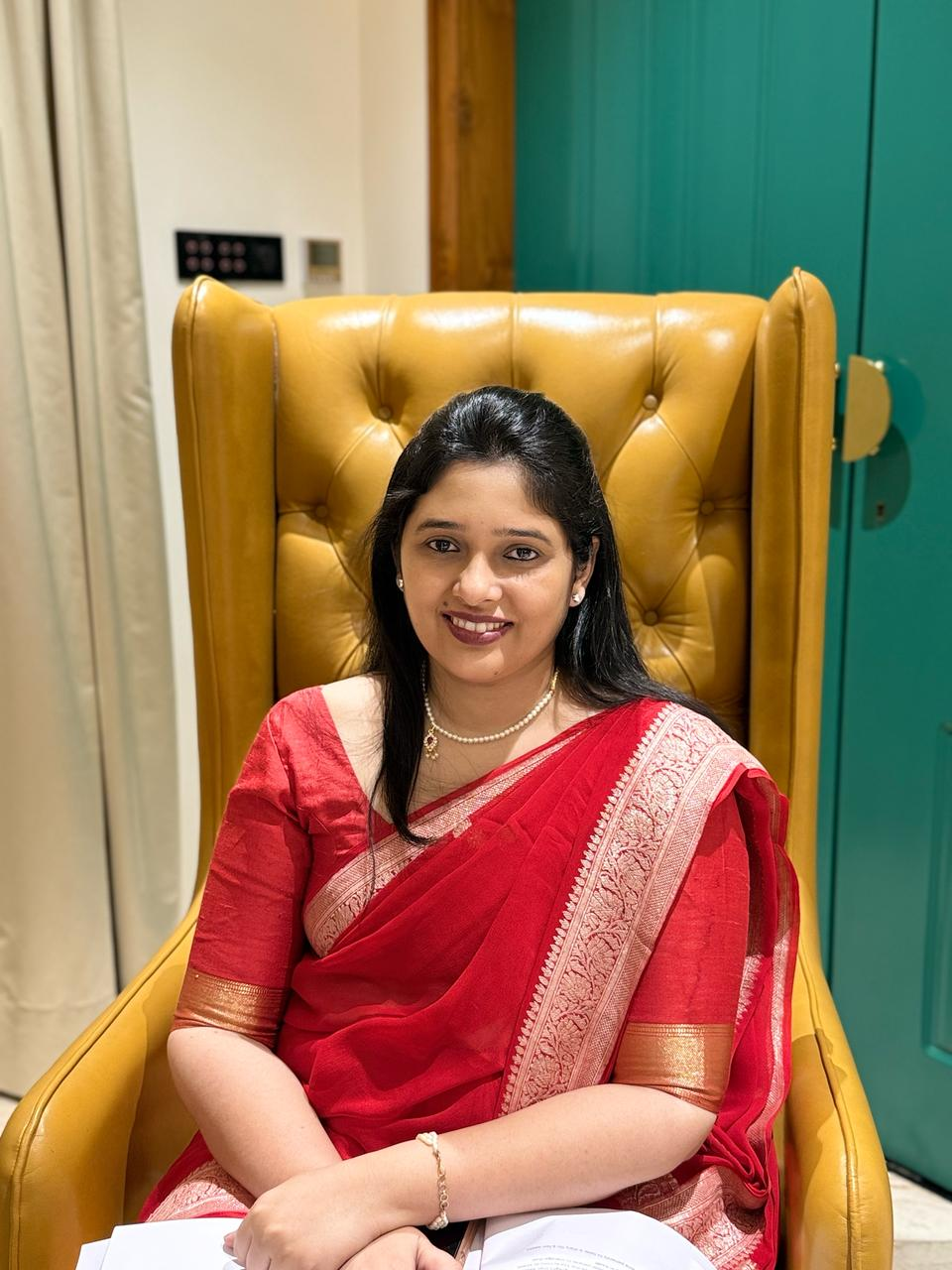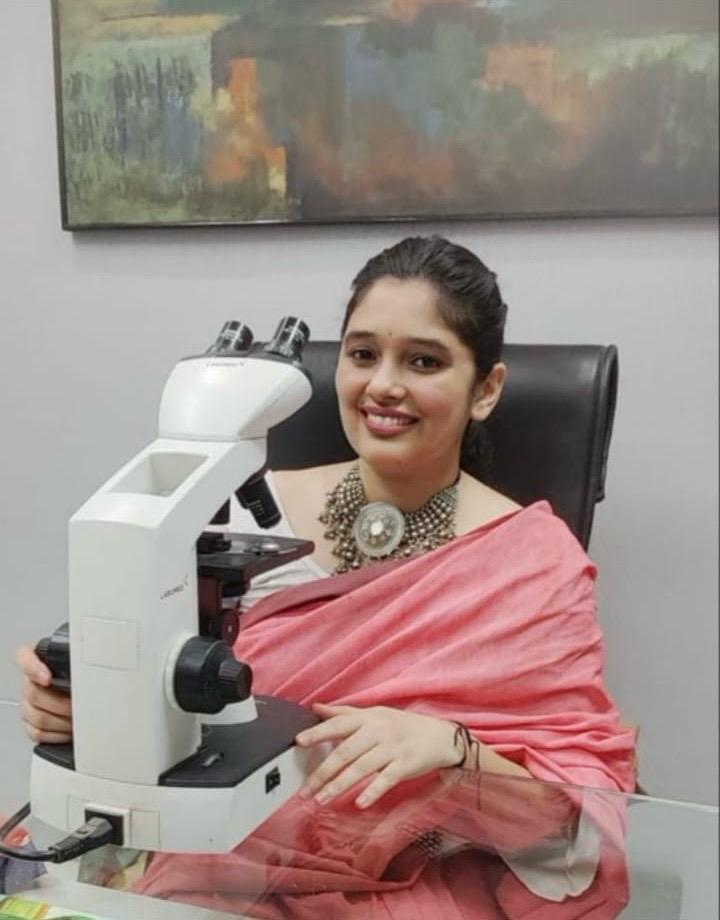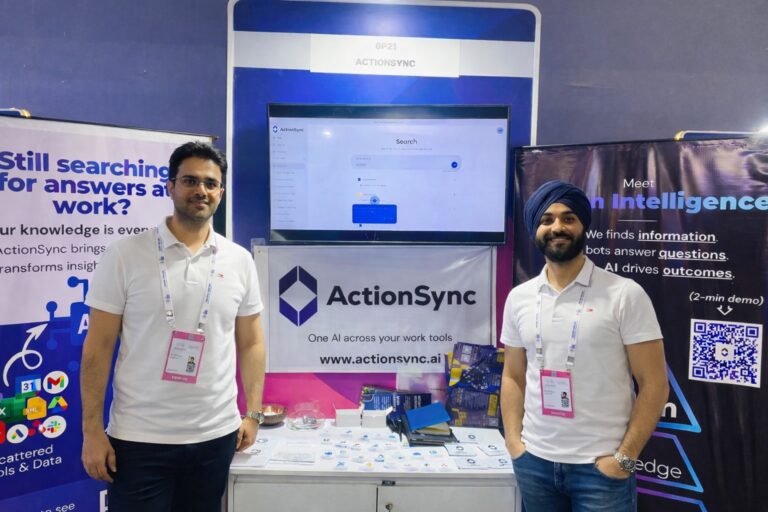
Dr. Ketki Kalele
In the ever-evolving realm of medicine and innovation, few stories inspire like that of Dr. Ketki Kalele a scientist, educator, and entrepreneur who has redefined the role of storytelling in science. Through her ventures Neuron Institute of Applied Research and Warkas Research, she has built spaces where passion meets precision, and ideas blossom into global publications.
What makes her journey unique is the soul behind the science a journey that began, quite literally, from bedrest and bloomed into a movement shaping minds across the globe.
Q: What inspired you to start the Neuron Institute during your pregnancy?
Dr. Ketki Kalele:
I’ve always been a workaholic someone who breathes research like it’s the ABCD of life! (laughs) Even during my pregnancy, when I was on strict bed rest for nine long months, I couldn’t just hit pause. For many, bedrest feels like a standstill; for me, it became a launchpad.
I realized that while I couldn’t be physically present on the field, my laptop could still be my lab. I started diving into meaningful research, joining hands virtually with researchers, analyzing data, reviewing literature, and transforming raw observations into publishable, impactful scientific scripts. That phase made me realize you don’t need a lab coat or a microscope to make a difference in research. What you need is intent, insight, and initiative.
And that’s how the seed for Neuron Institute of Applied Research was sown right from my bed, driven by the vision to empower many more like me who dream of contributing to science, no matter their physical circumstances. Today, Neuron stands as a testament that passion truly has no boundaries.
Q: How did the idea of combining storytelling with science come to life?
Dr. Ketki Kalele:
That’s a beautiful question and to answer it, I must take you on a little flashback journey.
I was blessed to grow up under the loving guidance of my grandfather, immersed in the timeless worlds of the Mahabharata, Ramayana, Panchatantra, and Aesop’s Fables. My childhood was a tapestry woven with stories of heroes, morals, magic, and meaning. I didn’t just hear stories; I lived them. In fact, I often say I became a storyteller the moment I started babbling words.
So when I was introduced to the world of science especially oncology and research I began seeing diseases not just as diagnoses, but as characters in narratives. Each condition had a backstory, a turning point, a conflict, and sometimes a resolution. Cancer, for instance, isn’t just a disease it’s a villain with a cunning plan. Its growth, its spread, its treatment all unfolded like a gripping plot.
And when I began teaching my students whether medical or dental in this narrative format, something incredible happened. They remembered it. They connected with it. It stuck.
That was my moment of epiphany. That’s when I knew: storytelling wasn’t just a creative outlet it was a powerful educational tool. It made science human. And that’s how the concept of blending storytelling with scientific education was born not from strategy, but from soul.
Q: Why do you focus so deeply on fields like oncology and neuroscience in your content?
Dr. Ketki Kalele:
Oncology is more than just a subject to me it’s a calling. I’ve never been drawn to it for the accolades or the limelight. My focus has always been clear: to build life-saving, practical innovations that heal that make a difference in the lives of patients and families navigating the darkest corridors of disease. I believe that if I’ve been given this beautiful gift of life, then I must use it to contribute meaningfully to transform pain into progress.
Neuroscience, on the other hand, is my philosophy of life. It fascinates me with its ability to explain the depths of human behavior, emotions, cognition the entire symphony of how we live, react, and evolve. For me, neuroscience is not just science; it’s self-mastery. The more I study it, the more I feel empowered to understand myself and the world around me.
Together, oncology and neuroscience make me feel like Alice in Wonderland wide-eyed, curious, forever exploring uncharted terrains of the human body and mind. These fields don’t just inform my work they define my purpose.
Q: What gap in scientific education does Neuron aim to fill?
Dr. Ketki Kalele:
Neuron was born out of a very real and deeply personal realization that despite being surrounded by brilliant minds, there exists a glaring gap between raw potential and meaningful scientific contribution. In most conventional systems, students are taught what to think, but not how to think like researchers. They’re memorizing facts but missing the magic of critical thinking, creativity, and application.
At Neuron, we aim to bridge that gap. We transform curiosity into capability. Our focus is on applied research, scientific writing, and publication mentorship not just for scholars in elite institutes, but for passionate students, clinicians, and professionals from all walks of life, including rural and underrepresented regions.
We believe that research shouldn’t be a privilege; it should be a possibility for anyone with a question and a willingness to explore. Neuron equips learners with the tools, the mindset, and the support to turn observations into innovations and ideas into impact. It’s not just about writing papers; it’s about creating problem-solvers and future leaders in science.
In essence, Neuron fills the space between textbook knowledge and real-world transformation with storytelling, strategy, and soul.
Q: How do you manage a team of 40+ researchers across different cities?
Dr. Ketki Kalele:
Managing a diverse team of over 40 researchers spread across cities isn’t just about systems and schedules it’s about building a shared vision that transcends geography. At Neuron and Warkas Research, we’ve created a culture where everyone feels connected to the why behind what we do and that makes all the difference.
We leverage technology not just for communication, but for collaboration virtual brainstorming sessions, real-time project dashboards, structured review loops, and most importantly, mentorship that flows without hierarchy. Everyone’s voice matters here.
But beyond tools and tech, it’s about trust and empowerment. I believe in identifying the unique strengths of each team member and allowing them the freedom to lead within their domain. Whether it’s a student in a small town or a senior researcher in a metro city, each person is encouraged to think, question, and innovate.
What truly binds us is our common passion to push boundaries in science, storytelling, and social impact. I often say, we may be miles apart, but we function like neurons connected, responsive, and always firing towards a shared purpose.
Q: What is Tu-MOOR, and how is it changing medical education?
Dr. Ketki Kalele:
Tu-MOOR is India’s first fiction-based medical education platform a dream turned reality that aims to transform the way we teach and learn complex subjects like oncology. The idea was simple yet radical: what if diseases were taught not as dry textbook content, but as living, breathing stories that could be followed, felt, and remembered?
With Tu-MOOR, we’ve created an immersive learning experience where students walk through the journey of a disease its origin, behavior, impact, and resolution — all narrated through engaging storylines that mirror real-life cases.
But it’s not just about storytelling; it’s a layered approach where clinical knowledge meets research mentorship. Every module is woven with interactive content, visual infographics, and thought-provoking research prompts that encourage students to question, analyze, and eventually publish. It bridges the gap between theory and application, helping learners move beyond rote memorization to true conceptual clarity.
More importantly, Tu-MOOR is inclusive. It empowers students across cities, backgrounds, and skill levels to access high-quality oncology education, guided by mentors who believe in nurturing potential. In essence, Tu-MOOR isn’t just an educational tool it’s a revolution that is making medical education more creative, accessible, and deeply impactful.

Q: How do you balance your roles as a scientist, author, and entrepreneur?
Dr. Ketki Kalele:
To be honest, I don’t see them as separate roles they are all threads of the same tapestry that is my purpose. Science gives me depth, authorship gives me voice, and entrepreneurship gives me wings. At the core of everything I do lies a single question: How can I make complex knowledge more meaningful and accessible to the world?
As a scientist, I dive into problems with curiosity and precision; as an author, I translate those insights into stories that resonate; and as an entrepreneur, I build platforms that bring those ideas to life at scale. The key to balancing it all is staying rooted in why I started to create scope where there was none, not just for myself, but for hundreds of others who dare to dream in science and education.
Of course, there are long hours, deadlines, and moments of self-doubt, but what keeps me going is the thrill of creating impact whether it’s a published paper, a child who understands cancer through a fairytale, or a young researcher finding their voice through Neuron. Each role nourishes the other, and together, they allow me to live a life of purpose, not just profession.
Q: What’s your vision for the future of Neuron and Warkas Research?
Dr. Ketki Kalele:
My vision for Neuron and Warkas Research is rooted in a single, powerful belief that innovation, impact, and inclusivity in science should not be limited by geography, privilege, or convention. With Neuron, I dream of building a national and eventually global ecosystem where research is not just a degree requirement but a deeply empowering journey one where students from rural towns, tier-3 cities, or underrepresented backgrounds can stand shoulder-to-shoulder with scholars from elite institutions. I want to see Neuron become a launchpad for young minds where scientific writing, storytelling, critical thinking, and publication aren’t just taught but lived.
With Warkas Research, my vision is even bolder. I see it evolving into a next-generation MedTech and innovation powerhouse, developing AI-integrated biosensors, diagnostic tools, and tech-driven oncology solutions that change the way we detect, treat, and even prevent cancer. But beyond patents and products, I want Warkas to stand for compassion-driven science where every innovation is anchored in real-life problems, and every solution is meant to ease suffering and save lives.
Ultimately, both Neuron and Warkas are expressions of the same dream to create meaningful change through knowledge, creativity, and courage. I don’t just want to build companies or institutions. I want to build movements ones that outlive me and continue to empower generations.





